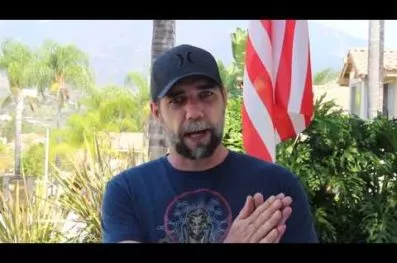VA Escape Clause, VA Amendatory Clause, VA Tidewater Appraisal

Va Loans
REAL ESTATE FOR VETERANS
What You Should Know About The Gatekeeper
The VA Appraiser and the VA Appraisal
The pros and cons of the VA Escape Clause, VA Amendatory Clause and the Tidewater Initiative

Peter Van Brady
Founder of SoCal VA Homes
Author: Avoiding Mistakes & Crushing Your Deals Using Your VA Loan
If you are an active military member or a Veteran looking to become a homeowner, you need to know about the advantages and disadvantages of VA appraisals. When you are in the midst of processing a VA loan, hopefully you’ll find out that the VA appraiser is really on your side, but there are some drawbacks that you need to know about.
As previously mentioned, VA offers are not the first choice for sellers who would prefer cash and conventional buyers. One reason for this preference is the VA appraiser is often stringent in their opinions of the property because they're being protective of YOU. But there are advantages and disadvantages with that VA appraisal, depending on your view point. The appraiser can be conservative, rigid, and even slow to complete. This can cause delays in the purchasing of the property. It can even crush transactions, primarily due to the final value placed on the home and placed on the appraisal document.
Let’s take an example, one that shows an advantage and disadvantage of a VA appraisal in the same attempted transaction. VA appraisals and the corresponding value of the home can come in lower than the negotiated purchase price. For example, let’s say that a buyer and seller agree on a selling price of $400,000 for the house. Then the VA appraiser does the inspection, looks at comparable sales of the property, finds issues, and then finally puts a value of $385,000 on it. Thankfully for the VA buyer, part of the required VA documentation in the transaction is the VA amendatory clause or “escape clause.” This protects the VA buyer because the seller cannot force the buyer to purchase the property at the contract purchase price of $400,000. In this circumstance, this buyer will have an option to pay cash for the difference in the contract price of $400,000 and the appraised value of $385,000. The buyer and seller may also entirely renegotiate the price, or the buyer may choose to “escape” the transaction and cancel altogether without any recourse from the seller. That protective measure is certainly an advantage for the VA buyer so the buyer is not paying more than the property is actually worth (in the opinion of the VA appraiser.)
One perceived disadvantage could be that the VA appraiser is being too conservative (even “picky”). For example, one of my clients had a recent experience with a picky appraiser. An entry walkway had a slight rise on a portion of it, and the concrete had some cracks in it. The appraiser called it a safety hazard, whereas most people’s more moderate opinion would be that it was just a small, correctable problem. The appraiser was just doing his job, but the walkway had to be repaired prior to closing. It’s a typical example demonstrating that the VA appraisal can pose both advantages and disadvantages, depending on your view.
When the VA appraiser makes a determination in the buyer’s favor, the VA Amendatory Escape Clause is activated. This escape clause is a non-negotiable clause required by real estate law. The definition of the actual escape clause is as follows:
"It is expressly agreed that notwithstanding any other provision of this contract, the purchaser shall not incur any penalty by forfeiture of earnest money or otherwise be obligated to complete the purchase of the property described herein if the contract price or costs exceeds the reasonable value of the property established by the Department of Veterans’ Affairs," (e.g. the VA appraiser). In other words, “Buyer, here’s your out.”
The escape clause can certainly be perceived as a disadvantage to the seller, creating some reservation and resistance to accepting a VA offer. With the previous example of the property sold for $400,000, let’s say they appraiser declares the value to be $385,000. The VA won’t guarantee the loan amount in excess of $385,000. What if the buyer believes that the property is definitely worth more than $385,000 and is willing to pay for the difference?
The second part of the clause actually allows for the buyer to pay the difference. It's an infrequent experience but not an uncommon experience, especially in a competitive “seller’s market” where there are many more buyers than there are sellers. Buyers may be more willing to stretch themselves and pay higher prices even though the appraisers don't think that the property is worth it. This puts the buyer and seller in a position to renegotiate. Let's say, in the example of the difference between $400,000 and $385,000, that the buyer and seller split the difference and renegotiate the contract price at $392,500, and they both concede $7500. In that instance, the buyer would contribute the $7500 and conclude the transaction.
In this manner, the VA Escape Clause really is a great protective measure. It acts as a conservative counterbalance. However, when the conservative VA appraised value gets attached to the appraisal, that result can create havoc in the midst of two motivated buyers and sellers! The seller could easily decide the VA appraiser is too conservative, and decide to sell the property to somebody else.
In our experience, the VA Escape Clause tends to lean as a benefit to the buyer. The value difference between the contract price and the appraised value is often minimal. And frankly, the only leverage that the common VA offer has over its competition in a hot market is to offer the highest price. That may entice the seller to accept the VA offer when the seller is just “letting the market dictate what the home is worth.” When the VA appraiser comes back with a lower value, it’s not a tremendous shock to the seller because they accepted the offer with the highest price anyway. The next step in the transaction becomes a renegotiation at a lower price, which can favor our buyer, if they have the cash to pay the difference between the new price and the appraised value.
For assistance in finding properties that fit within appraisal guidelines and making a VA offer to purchase, let So Cal VA Homes help. Call us at (949) 268-7742.
As Seen on ABC 10 5:00 O’Clock News












